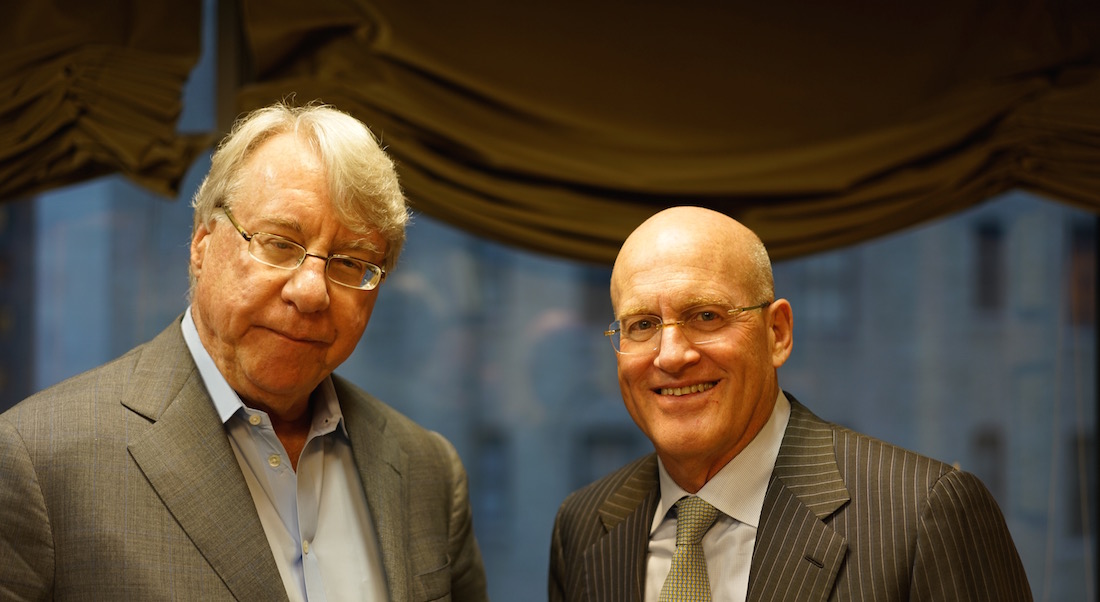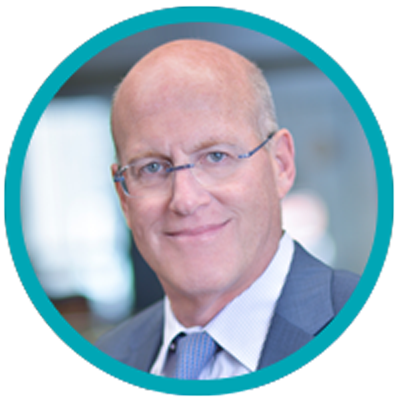More than eight years into the current stock market rally, professional equity bears have become an endangered species on Wall Street. And yet when I had the chance to sit down with famed short seller James Chanos last week, he was friendly, open, and highly optimistic about the opportunities to practice his tradecraft of sniffing out skunky accounting and malodorous business models.
I was excited to meet with Chanos after writing recently about how board members and senior managers could avoid becoming entangled in damaging accounting scandals and preserve corporate value. Chanos called out some of the most spectacular stock market meltdowns in the past few decades, including Enron, Worldcom, Sunbeam, and more recently Valeant Pharmaceuticals, all of which were Wall Street darlings at the time when he began asking questions. His fund, Kynikos, which is named after the ancient Greek Cynics, is known for deep scrubbing of financial statements. I wanted to know how he went about finding his targets and what lessons might be learned by board members to provide more effective oversight of public company accounting practices.
Beyond his many years of experience in spotting financial legerdemain, Chanos now teaches a course on the History of Financial Market Fraud at the Yale School of Management, and his bookshelves are lined with works covering bubbles and scandals going back to London’s 17th Century coffee houses. While today’s accounting scandals may employ greater complexity, the psychological drivers remain unchanged. To quote J.P. Morgan: “Nothing so undermines your financial judgment as the sight of our neighbor getting rich.” Chanos noted that the late stages of a bull market spawn plenty of short candidates as management schemes become more audacious and investors more willing to suspend disbelief.
The Fraud Triangle
Chanos said that he begins his class on market fraud with a simple question: “Who is responsible for ensuring that a company’s financial statements are true and accurate?” Over 90% of the students will respond that this is the job of the auditors, at which point he informs them that they need to go back and retake Introduction to Accounting. In reality, management is responsible for preparing financial statements, and Chanos has found that major accounting frauds are generally perpetrated by the highest level of management in an environment of ethical collapse. Often the chicanery may begin with relatively benign “earnings management” that still falls within the boundaries of GAAP accounting, and then lapses into more boldfaced maneuvers to sustain the illusion of growth.
Chanos discussed the three conditions of fraud triangle. First, there must be an opportunity created by weak or ineffective corporate controls or a complacent financial market culture. Second, executives must feel strong pressure to inflate results in order to prop up the company’s share price, reap compensation incentives, or maintain access to capital inflows. And third, unless the executive is a financial sociopath, there is always a rationalization as to why the management team is justified in cooking the books, along the lines of “everyone else is doing it” or “it’s the only way to save the company.” These factors make up the “fraud triangle” for financial bad behavior.
Chanos is a scholar of financial skullduggery, and has found that the essential tool kit used to inflate reported profits is endlessly recycled. American railroads in the 19th Century convinced British investors to accept net income that excluded charges for depreciation to keep new investment flowing, until dwindling cash flow forced the companies to cut their dividends and the shares collapsed.
He explained that the most valuable sources of information about a company’s underlying performance often come from industry sources, since they understand what truly drives value in a business. For example, while his fund had serious concerns about the accounting practices of food retailer Boston Chicken, it was only after a limited partner in the restaurant business explained why the franchise model was fatally flawed that Chanos went all in, riding the once high flying stock all the way down to zero when it filed for bankruptcy.
Chanos was skeptical that most auditors would be able to catch a sophisticated financial fraud and says he rarely engages with a company’s public accounting firm. I asked him what steps he would like to see an audit firm take to avoid being embroiled in an accounting scandal. He suggested to make it a condition of being retained that the auditor would have the freedom to ask probing questions of employees working at any level of the company, since companies that are perpetrating a fraud normally keep financial information accessible to a very tight circle. If an auditor were to gain a reputation for digging deeply into the business drivers, then investors would quite rationally assign a higher credibility to the financials of the companies it audits.
Another question that Chanos stumps his students with is: “To whom does the Board of Directors owe a fiduciary duty?” Nearly all of them will respond “to the shareholders,” whereas in reality the duty is owed to the corporation. The distinction means that directors should employ a longer term perspective in exercising business judgment, rather than simply maximizing short term share price. By mandating an effective control environment and reducing the incentives for management to overstate financial performance, the Board could remove at least two of the three vertices of the “fraud triangle.” But despite recent reforms to enhance board independence, Chanos said that most board members simply do not invest the time or energy to effectively be able to prevent accounting fraud. By focusing their evaluation of management performance on a few defined metrics that are favored by Wall Street analysts, Boards can create perverse incentives to game the system in increasingly creative ways.
Accounting Tricks in Plain Sight
One of the unusual features of the current market is that many of the tricks used to puff up financial results are “hiding in plain sight,” Chanos noted. He gave the example of Valeant Pharmaceuticals, which swelled to a market value of nearly $90 billion at its height. Fund managers loved Valeant’s model of buying smaller drug companies, hiking the prices on the drugs it acquired, and then slashing investment in notoriously uncertain new drug development programs.
Valeant’s trajectory of stunning earnings growth depended on two things. First, it needed to be able to find ever-larger sized drug portfolios to gobble up. And second, it needed to convince analysts to focus on a measure of “cash earnings” that excluded the amortization charges for the drugs that it had acquired. There was only one problem. Those amortization charges were a true expense, since Valeant had to pay cash to purchase its targets and the pharmaceuticals all had a limited number of years before their cash flow would be disrupted by generic competition. It was the 19th century railroad trick all over again. And Valeant’s more accurate GAAP earnings were there for any investor to see.
Predictably, Chanos is hardly a fan of non-GAAP accounting, which has also recently come under increasing scrutiny by the SEC. He scoffed at the idea that stock compensation should be excluded from technology companies’ earnings as a non-cash expense, given that this talent is one of the most valuable and expensive inputs to these corporations’ business models. If share-based compensation is not an expense, why not pay for all of corporate expenses with stock? The “non-GAAP earnings” would then be equal to revenues.
Shorting is Hard Work
Selling stocks short has always been a lonely profession, since the vast majority of funds are long-biased, and equity analysts are incentivized to be bullish. The long-term upwards trend in the stock market means dedicated short funds are forever swimming against the tide.
Chanos explained that the mechanics of shorting have become much more expensive in the past decade. When his fund borrows shares in order to sell a stock short, it must put up cash collateral such as T-bills against the value of that stock. In the past, a short fund would receive a share of the interest generated by the collateral as a “rebate.” But as the market has become more automated and efficient, heavily shorted stocks now command “negative rebates” in which short sellers must pay between 10% and 40% for the privilege of borrowing the shares. Given this dynamic, most of the obvious and popular shorts have become dubious business propositions. If a troubled company loses 60% of its equity value over two years with a 30% negative rebate you still haven’t made any money. And if the financial performance turns around, your potential losses are unlimited. For this reason, a dedicated short fund needs to do intensive work on a company’s accounting and business model to achieve a very high conviction level that the stock is not merely overvalued, but on the path to implode.
Chanos said that despite the many structural disadvantages of running a short fund, he has one important competitive edge — a limitless number of people willing to tell him that he’s wrong. Once Kynikos has become convinced of a short thesis he often invites the analysts covering the stock to come in and then presents his findings. Sometimes he finds major shareholders truly don’t understand how the company makes money or how management applies basic accounting principles. In other cases, the analysts will agree with the facts he presents, but disagree about their significance. Either way, his ideas are stress-tested by smart, well informed parties who are invested in the stock’s success.
It takes an unusual kind of person to make a career out of selling stocks short. After all, how many of us walk down the street and look up at the buildings and speculate which one is likely to come tumbling down? But I came away from the meeting with Jim Chanos with my mind buzzing with ideas and a reading list that could fill up a year. Auditors, investors, and board members could all benefit from applying his skeptical eye to how financial results are reported.
Today, we associate cynics with those who are distrustful of human motives and inclined to see the worst in everyone. But the original Cynics saw their role as helping people to live virtuous lives by showing them the truth. The most famous cynic of all, Diogenes, once said: “Other dogs bite their enemies. I bite my friends to save them.”










.jpg?width=200&name=Howard%20Schilit%20(1).jpg)


